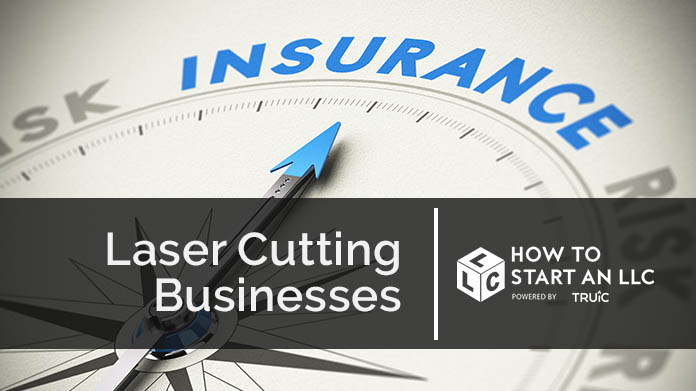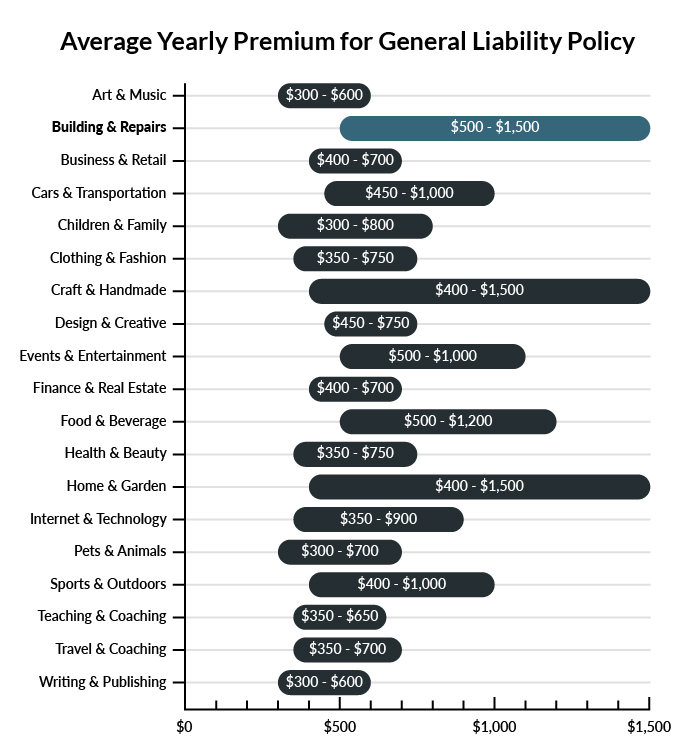Laser Cutting Business Insurance
Getting insurance for your laser cutting business is essential.
Laser cutting businesses need to be protected against things like claims of product liability, property damage, and personal injury.
For example, an employee accidentally burns themselves on a laser cutting machine, or one of your products turns out to be a safety hazard to a customer.
We’ll help you find the most personalized and affordable coverage for your unique business.

Recommended: Ergo Next Insurance is dedicated to matching small businesses with the right policy at the best price.
Best Insurance for a Laser Cutting Business
General liability insurance is — generally speaking — one of the most important insurance policies for laser cutting businesses.
Some of the risks general liability insurance covers are:
- Bodily injury
- Property damage
- Medical payments
- Legal defense and judgment
- Personal and advertising injury
There are numerous additional policies that many laser cutting businesses commonly use to enhance their protection, such as:
- Product liability insurance: Keeps your business financially safe from any claims from customers of dissatisfaction or injury caused by your products.
- Commercial property insurance: This policy will pay for the repair or replacement of any business property that has been damaged by a covered event.
- Workers’ compensation insurance: A policy mandated by all states for businesses with payrolled employees.
When acquiring your business coverage, you will generally be able to choose between the following two types of insurers:
- Traditional brick-and-mortar insurers — Such as The Hartford, Hiscox, and Nationwide.
- Online insurers — Such as Ergo Next and Tivly.
We strongly recommend online insurers due to their general value for money. Because of their digital approach to selling insurance, they can offer far cheaper quotes due to their lower costs of operation.
Let’s Find the Coverage You Need
The best insurers design exactly the coverage you need at the most affordable price.
Cost of General Liability Insurance
On average, laser cutting businesses in America spend between $500 – $1,500 per year for $1 million in general liability coverage.
Compare the average cost of general liability insurance for a laser cutting business to other professional industries using the graph below.
Several factors will determine the price of your policy. These include your:
- Location
- Deductible
- Number of employees
- Per-occurrence limit
- General aggregate limit
You may be able to acquire general liability insurance at a discounted rate by purchasing it as part of a business owner’s policy (BOP) rather than as a standalone policy.
A BOP is a more comprehensive solution that includes multiple forms of coverage, such as business interruption and property insurance.

Find the Best Rate
Discover the best coverage at the lowest rate in our affordable business insurance review.
Common Situations That General Liability Insurance May Cover for a Laser Cutting Business
Example 1: While meeting with a client, they trip over some of your office equipment, causing physical injury. Your general liability policy should cover their medical bills.
Example 2: As part of your marketing strategy, you have applied to attend several conventions. These conventions require each participant to carry a minimum of $1 million of liability insurance. A general liability policy will help fulfill that requirement.
Example 3: While delivering trophies for your customer’s event, your employee loses control of a heavy handcart, breaking the trophies and damaging the venue’s floor. General liability insurance should cover the cost of legal representation and court-awarded damages for the lawsuits both the customer and the venue have brought against you.
Other Types of Coverage Laser Cutting Businesses Need
While general liability is the most important type of insurance to have, there are several other forms of coverage you should be aware of. Below are some of the most common types of coverage:
Product Liability Insurance
For business owners who manufacture, supply, or sell products, this is an important coverage. If a client claims dissatisfaction or claims injury from your products, they can bring a legal suit against you. Product liability insurance ensures you are legally represented in court. Additionally, if the court rules in favor of the claimant, it will cover damages, up to the limits of the policy.
This type of policy is generally sold as part of a business owner’s policy (BOP) and you can tailor it to the business’ unique insurance needs.
Commercial Property Insurance
To protect your business-owned assets, you will need to discuss the importance of commercial property insurance with your agent. In the event of a covered loss, including fire and windstorm, this policy would repair or replace owned buildings, inventory, and equipment. Renters should review the terms of their lease to determine if they are responsible for any portion of the leased building, as many policies offer additional endorsements to ensure no gap in coverage.
Commercial property insurance is often written as part of a business owners’ policy (BOP).
Workers Compensation Insurance
This state-mandated policy is a requirement for all business owners with employees. It offers medical coverage and a percentage of lost wages for workers injured while on the job. If sued over the claim, the policy would also cover your legal representation costs.
This coverage is generally purchased as a standalone policy.
Additional Steps To Protect Your Business
Although it’s easy (and essential) to invest in business insurance, it shouldn’t be your only defense.
Here are several things you can do to better protect your laser cutting business:
- Use legally robust contracts and other business documents. (We offer free templates for some of the most common legal forms.)
- Set up an LLC or corporation to protect your personal assets. (Visit our step-by-step guides to learn how to form an LLC or corporation in your state.)
- Stay up to date with business licensing.
- Maintain your corporate veil.
Laser Cutting Business Insurance FAQ
Yes, absolutely. You will need to first get a quote from an online business insurance provider like Ergo Next Insurance. Ergo Next allows you to then purchase a policy immediately and your coverage will be active within 48 hours.
A typical business owner’s policy includes general liability, business interruption, and commercial property insurance. However, BOPs are often customizable, so your agent may recommend adding professional liability, commercial auto, or other types of coverage to your package depending on your company’s needs.
“Business insurance” is a generic term used to describe many different types of coverage a business may need. General liability insurance, on the other hand, is a specific type of coverage that business owners need to protect their assets.
Yes. Due to the risks a laser cutting business will face from day one, obtaining business insurance before the fact is strongly recommended.
Keep in mind that certain specific forms of insurance may be demanded of your business (such as workers’ compensation and commercial auto insurance).
Not necessarily. Certain exceptions may be written directly into your laser cutting business insurance policy, and some perils may be entirely uninsurable.
Yes, an LLC is meant to create a legal barrier between your business and your personal assets and credit. If you haven’t formed an LLC yet, use our Form an LLC guide to get started.
An LLC doesn’t protect your business assets from lawsuits and liability– that’s where business insurance comes in. Business insurance helps protect your business from liability and risk.